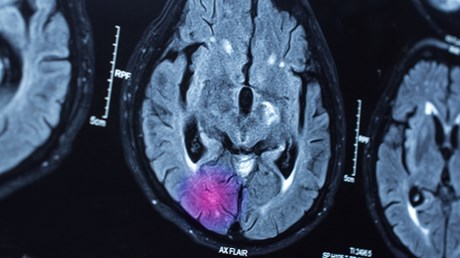
More Than Material Minds
As a Christian and a neuroscientist, I keep learning that to be human is to have a soul.

From Plough Quarterly No. 17: The Soul of Medicine (Summer 2018) Copyright © 2018 by Plough Publishing House. Reposted with permission.
I watched the CAT scan images appear on the screen, one by one. The baby’s head was mostly empty. There were only thin slivers of brain—a bit of brain tissue at the base of the skull, and a thin rim around the edges. The rest was water.
Her parents had feared this. We had seen it on the prenatal ultrasound; the CAT scan, hours after birth, was much more accurate. Katie looked like a normal newborn, but she had little chance at a normal life. She had a fraternal-twin sister in the incubator next to her. But Katie only had a third of the brain that her sister had. I explained all of this to her family, trying to keep alive a flicker of hope for their daughter.
I cared for Katie as she grew up. At every stage of Katie’s life so far, she has excelled. She sat and talked and walked earlier than her sister. She’s made the honor roll. She will soon graduate high school.
I’ve had other patients whose brains fell far short of their minds. Maria had only two-thirds of a brain. She needed a couple of operations to drain fluid, but she thrives. She just finished her master’s degree in English literature, and is a published musician. Jesse was born with a head shaped like a football and half-full of water – doctors told his mother to let him die at birth. She disobeyed. He is a normal happy middle-schooler, loves sports, and wears his hair long.
Some people with deficient brains are profoundly handicapped. But not all are. I’ve treated and cared for scores of kids who grow up with brains that are deficient but minds that thrive. How is this possible? Neuroscience, ...
from Christianity Today Magazine https://ift.tt/2MvHjQR

0 Response to "More Than Material Minds"
Post a Comment